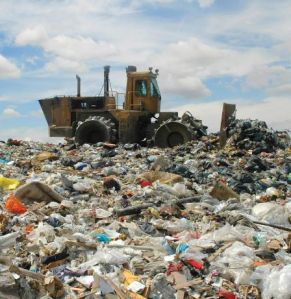
Municipal Solid Waste Shredder Machine
2,500,000 Per Piece
1 Piece (MOQ)
Shredding is a critical process in the management of municipal solid waste (MSW), which encompasses everyday waste materials generated by households, businesses, and institutions. The diverse nature of MSW, including organic matter, plastics, paper, metals, and glass, makes it necessary to implement efficient methods for processing and disposal. Shredding plays a pivotal role in enhancing the efficiency, safety, and sustainability of MSW management.Key Roles of Shredding in Municipal Solid Waste Management: Volume Reduction: Shredding reduces the volume of waste, making it easier to handle, transport, and store. This is especially important in urban areas where waste generation is high, and landfill space is limited. Reduced volume also leads to lower transportation costs and more efficient use of landfill space. Facilitation of Waste Separation: Shredding breaks down waste into smaller, more uniform pieces, which facilitates the separation of different materials for recycling. For example, metals, plastics, and organic waste can be more easily sorted and processed after shredding, improving the overall efficiency of recycling operations. Preparation for Incineration and Energy Recovery: Shredded waste has a higher surface area, which enhances the combustion process in waste-to-energy plants. This leads to more efficient energy recovery and reduced emissions during incineration, contributing to more sustainable waste management practices. Composting and Organic Waste Management: For organic components of MSW, such as food scraps and yard waste, shredding accelerates the composting process by increasing the surface area of the material, facilitating faster decomposition. This results in higher-quality compost and reduces the volume of organic waste sent to landfills. Improvement in Landfill Operations: Shredded waste is more compact and uniform, which improves the operational efficiency of landfills. It allows for better compaction, reducing the need for frequent cover materials and extending the lifespan of landfills. Additionally, shredded waste is less prone to generating large voids or uneven settling, which can cause operational challenges. Reduction of Pest and Odor Problems: Shredding can help mitigate issues related to pests and odors in waste management facilities. By breaking down waste into smaller pieces, it reduces the risk of pest infestation and speeds up the degradation of organic material, which can help control odors. Support for Waste Treatment Processes: Shredding prepares MSW for various treatment processes, such as mechanical biological treatment (MBT) and anaerobic digestion, by homogenizing the waste material. This leads to more consistent and efficient processing, whether the goal is material recovery, energy production, or the stabilization of waste before disposal. In summary, shredding is a vital component of municipal solid waste management, contributing to the reduction of waste volume, facilitating recycling and composting, improving energy recovery, and enhancing landfill operations. It plays a significant role in promoting sustainable waste management practices and optimizing the overall efficiency of waste handling systems.

Scrap Copper Cable Recycling Machine
Get Price Quote
Best Deals from Waste Machinery